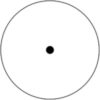The core hitch in monistic thinking is (if there is only one thing) why do there appear to be many things? And if there was only one thing that gave rise to many other things, how did this happen and what does it mean to individual things?
Fragmentation? Like light through different planes of a crystal? That’s a common metaphor in qabalism, so good example. Nirvana is actually not as airy fairy as it might seem at first glance to some thinkers. They aren’t trying to get out of reality, they are trying to get more deeply into it. They don’t see our common experience as being a genuine reflection of absolute reality so that’s what their practices work to address. It’s not nearly as escapist as some have tried to describe it as being.
String vibrating at different wavelengths produce different subatomic particles. Ah indeed, a unified field theory would be another example of monism. Does this stuff about nirvana and Buddhism make sense?
The best sense I’ve found so far, actually.
Though animism is basically pluralistic, there are symbols that serve to represent a unifying principle even in that school of thought, the world tree or axis mundi. So strangely, perhaps, humanity and society have moved from an openly pluralistic view of the world to a monistic. This is why there are so many variant flavors of monism. It gets invented and reinvented. Why do you think this is?
Like going from Hinduism to Buddhism, it’s easier to understand? Fewer things to focus on?
More information and more categories to put information in? And to find common denominators among? Brahminical Hinduism is itself monistic at heart. Perhaps that desire to discover or discern a common denominator I think. Some fundamental reality that they can understand that would make all the myriad things make sense, and so it goes around and round in circles.
I ponder unified field…
I find when organizing my inventory in a game, it helps to find commonalities: weapons, armour, etc…. It makes all the items less scary. The universe is a scary place. It’s easier if you can simplify it. Matter, god, absolute reality, various things, even air, fire, and water have been advanced.
I hate when an item doesn’t fit into one of my categories. I don’t know what to do with it and I’m likely to get rid of it.
I’ve noticed when tackling any project, things initially become more complex and then it all collapses into a simpler structure as understanding grows. This is even taught as part of the process in projects.
I see only one unifying factor myself, the observer. I guess it’s largely avoided because it seems very difficult for the eye to view itself, metaphorically speaking.
Isn’t a “category” simply a way of viewing and grouping things — a context? So, as “observer” one is continually putting frames around one’s observations … No? Indeed, even without volition those frames are added.
Need a metaphoric mirror. We actually have that mirror, it’s all around us.
A point of clarification, I consider myself essentially pluralist. That being said, the shared reality we are all trying to seek out and define isn’t and can’t be present in what is thought of as the outside world. The more outward we focus the more divergent our arguments get, because if it isn’t the observer then it ultimately has to be “not me.”
I guess I am pluralistic: 1) me 2) all those dang idjits.
I think I’m also pluralistic inwardly, maybe even more than I am pluralistic outwardly. Containing many selves…
The observer is the landscape. When you talk you are talking to yourself, and very often yourself is not listening. Every process, every thought, every computation is a form of talking to yourself. It can all only occur as a form of tautological or circular dialogue, sort of a monistic theory of ontological gravity. To have I and thou there has to be a break in observation, though not natural or “real” force actually creates that break.
So monism is recursive? Monism is definitely recursive, thus the classical conclusion that it’s turtles all the way down.
Yes… recursive and iterative too.
The ‘all is one’ idea discussion always goes in circles.
But can’t a single line be divided into many points – many line segments? Yes, and in fact no. A line can’t actually be divided into many points. No such division process can take place because there is actually no space, even probabilistically, for that to occur. The only process is unification. Things start out, multiply and become unified. The brain does this in every way it can and with every system at it’s disposal. This is how we have a whole seamless experience, as illusory as that is.
I remember how magick is always addition. Indeed, works of magick are always addition.
This seems to be pictured in nature continually. Consider the cycles of water, or virtually any chemical. Cycles of multiplication and unification…
Your thoughts are welcome. Be well friends.
Travis Saunders
Dragon Intuitive
~science,mysticism,spirituality~



Leave a Reply